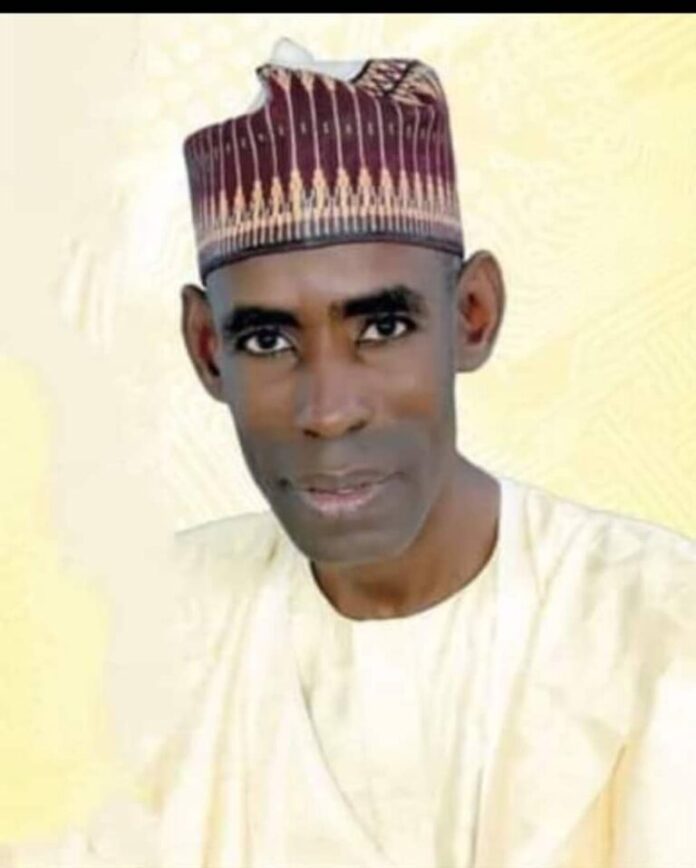Southern Solidarity for Tinubu: Which South, what solidarity? – A rejoinder, by
Engr. Bello Gwarzo Abdullahi, FNSE
The write-up by Ikechukwu Amaechi, published in the Vanguard News on August 14, 2025, is a thought-provoking and incisive piece that should compel serious reflection among those observing Nigeria’s ever-evolving democratic trajectory. His article critically examines the discourse surrounding President Bola Ahmed Tinubu’s potential bid for a second term, and it does so with both logical rigor and moral clarity.
The key points raised merit further engagement and deeper scrutiny—particularly as they illuminate troubling patterns in our national politics that must no longer be overlooked.
1. The Debate Over Tinubu’s Second Term
Nigeria finds itself once again ensnared in a familiar yet disconcerting political discourse: the advocacy for President Tinubu’s second term in office. Proponents of this campaign are quick to invoke his constitutional right to serve two terms. However, a critical nuance is often disregarded—nowhere is a second term assured. It is a privilege that must be earned, not an entitlement conferred indiscriminately regardless of performance or public sentiment.
Moreover, many of Tinubu’s supporters lean on the argument of rotational presidency between the North and South, positing that a Southern candidate must be permitted to complete a purported two-term cycle. Yet, the sincerity of this position is open to question. While the call for Southern representation in power is legitimate, the pertinent inquiry remains: should it be Tinubu once more? And does his stewardship genuinely embody the collective Southern interest—or merely his personal aspirations?
2. Tinubu’s Divisive Political Strategy
President Tinubu’s political playbook has increasingly come under scrutiny for being divisive and self-serving. He has positioned himself as a champion of Southern unity, often portraying Northern political actors as impediments to Southern advancement. However, his actions narrate a different tale.
READ ALSO: As the 2027 plot to unseat the ruling party thickens, by Engr. Bello Gwarzo Abdullahi, FNSE
Instead of fostering connections, Tinubu has severed many. His tenure thus far has exhibited scant evidence of inclusive governance. Political marginalization, selective appointments, and regional favoritism have raised profound questions about his true intentions. Even within the South, his perceived dominance and the deployment of state apparatus to silence dissenting voices have alienated erstwhile allies.
Rather than cultivating a united front, his leadership has exacerbated intra-regional mistrust. What solidarity can genuinely exist when the supposed leader of the South is perceived as indifferent to the concerns of significant Southern constituencies?
3. Southern Disunity and the Lagos Question
Lagos, frequently heralded as Tinubu’s political stronghold and a microcosm of Nigeria’s diverse ethnicities, has in recent years become emblematic of the nation’s broader ethnic tensions. The 2023 elections unveiled disquieting trends—ethnic baiting, targeted intimidation, and discriminatory rhetoric, particularly against the Ndigbo population.
READ ALSO: It’s the politics, stupid!, by Engr. Bello Gwarzo Abdullahi, FNSE
Rather than denouncing these actions, Tinubu’s political machinery appeared to endorse them. Such tactics are not only unbecoming of a national leader—they are perilous. They undermine the notion of national unity and cast doubt on the legitimacy of the “Southern solidarity”that Tinubu and his allies profess to promote.
It must be queried: which South does Tinubu genuinely represent? The one that marginalizes dissenters, silences critics, and scapegoats minority groups? Or the one that champions justice, fairness, and equal participation?
4. Historical Sacrifices and the Need for Real Equity
Amaechi astutely recalls the historical sacrifices of Southern politicians—particularly from the South-East—who have consistently demonstrated a willingness to prioritize national unity over narrow ethnic interests. Leaders from the Igbo heartland, despite enduring years of political marginalization, have played pivotal roles in shaping contemporary Nigeria. Frequently, they have relinquished regional advantage for the greater good.
Yet today, some of the most vocal advocates calling for “Southern unity” are reluctant to extend that same fairness within the region itself. Southern solidarity must not devolve into a hollow slogan wielded to advance the interests of a select few. It should be anchored in justice, inclusion, and equitable power-sharing across all Southern zones.
To disregard these principles is to perpetuate the cycle of betrayal that has beleaguered Nigeria’s political evolution.
5. A Call for National Reflection and Responsibility
When the lofty rhetoric of unity is juxtaposed with the sobering reality of exclusion and political manipulation, it becomes evident that the time for passive observation has elapsed. Nigeria requires leadership grounded in service, not self-interest; in inclusion, not division; in truth, not opportunism.
We must resist the allure to be swept along by political propaganda masquerading as patriotism. The notion of Southern solidarity must be redefined—not as a rallying cry for political opportunists, but as a sincere commitment to unity, justice, and democratic fairness for all Nigerians, irrespective of their region or ethnicity.
The arguments laid bare in Amaechi’s article—and echoed in our lived experiences—are not merely cautionary tales. They are clarion calls. The time to act with patriotic fervor and nationalistic integrity is now. We must reject the politics of deception and resolutely oppose those who barter the future of a nation for their own ambitions.
Let the discerning rise to the occasion. Let Nigeria be liberated from the grasp of those who have transformed democracy into a vehicle for personal glorification rather than collective advancement.
bgabdullahi@gmail.com
Follow the Neptune Prime channel on WhatsApp:
Do you have breaking news, interview request, opinion, suggestion, or want your event covered? Email us at neptuneprime2233@gmail.com





